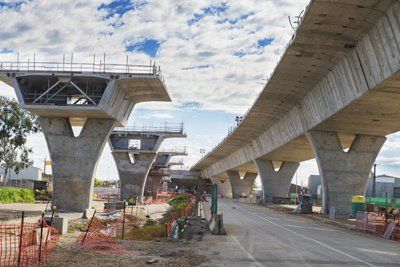Geotechnical Highway
Geotechnical Highway Consulting in NYC, Manhattan, The Boroughs, Nassau County, Suffolk County, Long Island, and New Jersey - Kagaoan Engineering

Geotechnical Consultants for Streets, Highways, and Pavements
Interstate 80 is one of the longest stretches of highway in the U.S. It spans almost 2,900 miles, running from Teaneck, NJ to San Francisco. Maintaining vast expanses of pavement requires sustainable solutions with long-lasting results. Travelers and freight companies depend on roadways to get to and from work, delivery locations, vacation, and school each day. The pavement wears down with use, especially with heavy traffic or loads when transporting freight.
Contact us for free consultation.
In climates where seasonal weather includes winter, the asphalt degrades with the freeze and thaw cycle. Places like New York and New Jersey that see record lows at the beginning of the week just to end up in the 60's by the weekend find that the roads tear up faster. The damage is more substantial the more significant the temperature swing, and when the cycle repeats more often than usual.
Finding affordable ways to test, repair, and maintain these roadways are primary goals for our geotechnical consulting team at Kagaoan Engineering. We have the certifications and technical skills to assess the pavement and recommend necessary actions for support or repair. Our specialists can install helical piles, caissons, timber lagging, concrete slabs, and retaining walls depending on the scope of the highway or street project. We work alongside architects and builders to ensure that we follow all state and federal regulations. We adhere to the highest safety standards, and our engineers have the knowledge to provide custom solutions for various structures in the private and public sectors.
Three Primary Pavement Types
Concrete
Concrete is a mixture of gravel or large aggregate, water, sand, and cement. This composition combines to form a solid surface. Ash is another possible addition to this mix. The concrete begins as a wet mixture that dries to form a flat roadway.
- More durable than asphalt
- Costs more to install
- Length of use makes concrete more cost-effective than asphalt in the long-term
- Stronger than asphalt
- More skid resistant versus asphalt
- Easy to maintain with crack and sealing treatments, diamond etching, and dowel inserts
Asphalt
Asphalt usually sits on a bed of gravel. The underlying aggregate is at least as thick as the pavement. This surface is useful for roadways that have more than 1,200 vehicles that use the surface daily.
- Quieter pavement when traveling on the roadway
- Cheaper installation
- Faster install
- Three ways to pave roads with hot, warm, and cold applications
- Not as durable as other pavements
- Will contribute to VOC's in the air when laying asphalt
- Heat can cause asphalt to leech chemicals into the air or groundwater sources
Composite Pavement
One way to strengthen existing roads is to use a hybrid system. A concrete sub-layer goes into place over the aggregate. The asphalt goes on top of the concrete. The base layer is durable and holds up to greater traffic loads. The top layer is quick to replace and more affordable for government entities to manage on a strict budget. A common disadvantage is that the sub-layer can develop hairline cracks that could pose problems with heat exchange.
Less Common Road Surfaces
Bitumen
A bituminous surface treatment, or BST, is useful for roadways with little traffic. Bitumen roadways are common in the north because they stand up well to the freeze and thaw cycle in the spring. This pavement has other names like micro paving and slurry seals.
Spray On Pavement
A thin membrane surface, or TMS, is a petroleum product that goes over the top of the gravel as a spray making a smooth pavement that produces no dust when vehicles travel across the road. This membrane adds no strength. The primary benefit of this application is that is the reduction in mud on the pavement.
Otta Seal
- Inexpensive
- Combination of bitumen and pulverized rock
Other street materials
- Brick
- Paving stones
- Gravel
- Wood planks
- Cobblestone
Kagaoan Engineering is Your Top New York Street and Highway Pavement Consultants
Do you need soil sampling or test sites for asphalt or concrete road construction? Does your business have a responsibility to maintain roadways or parking lots? Waterfront engineering projects have a diverse set of challenges that engineers must address to create roadways that are capable of handling high traffic loads with exposure to road salt, sea spray, or residue on vehicle tires traveling through corrosive ingredients. Our experts understand the unique challenges of working in an environment with cold temperatures, high winds, and harmful salt residue. We work with your firm to discover the best course of action for your street and pavement needs.
To learn about solutions for your infrastructure projects, please contact our engineering and design team. We work with aging roadways, new additions, retrofits, ground stabilizing methods, and soil testing to ensure that your project meets budget, weight, time, and other constraints. Contact us
today.
About Kagaoan Engineering
Every member of Kagaoan Engineering is an experienced professional who brings distinct strengths and specialities to the company. We work together as team to ensure that your project has the skill sets required to succeed.
Copyright 2017 The Kagaoan Engineering. All Right Reserved. Art Commercially Licensed by Shutterstock.

